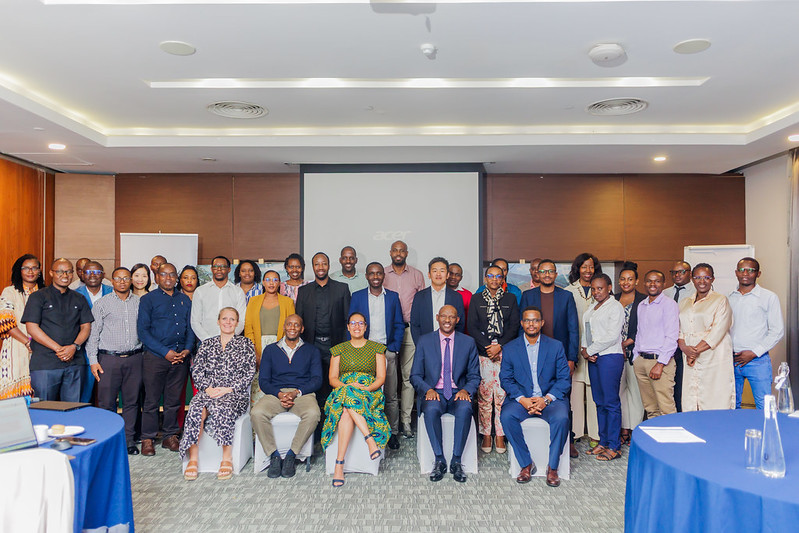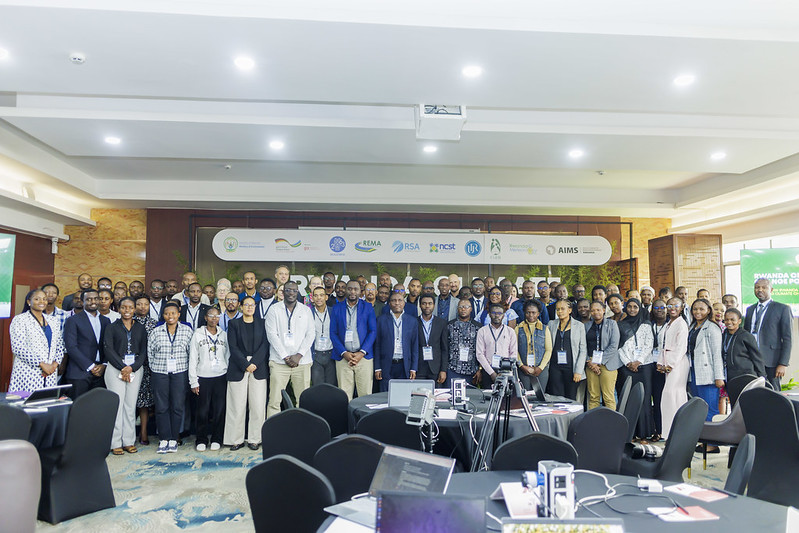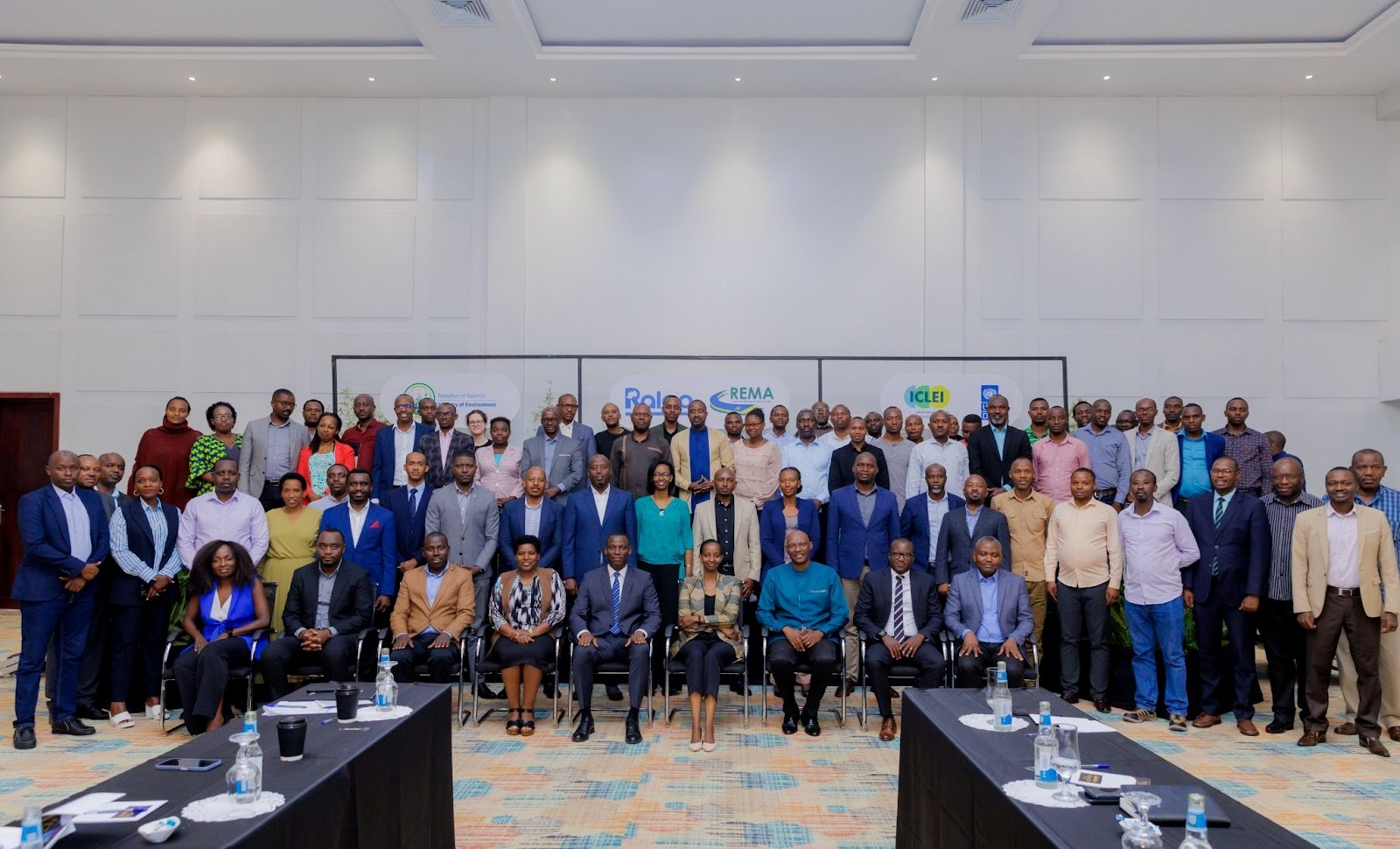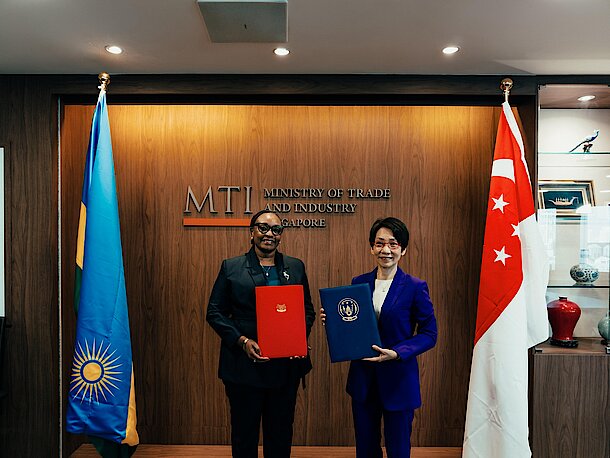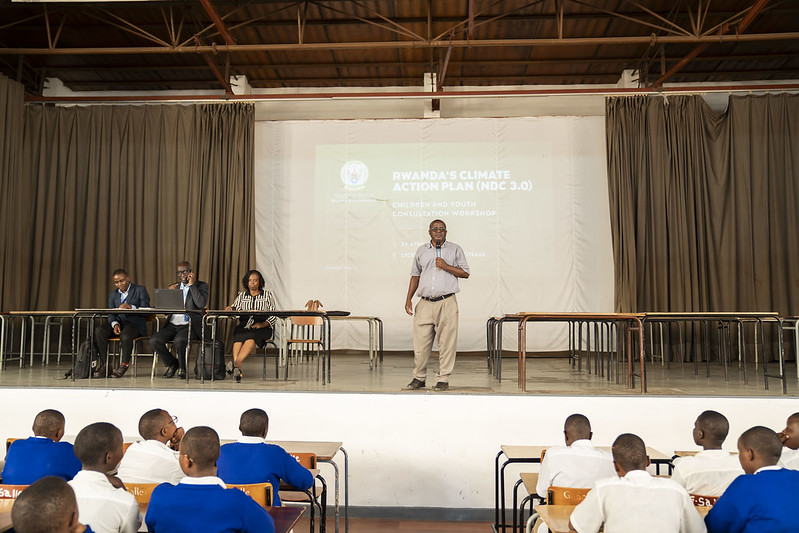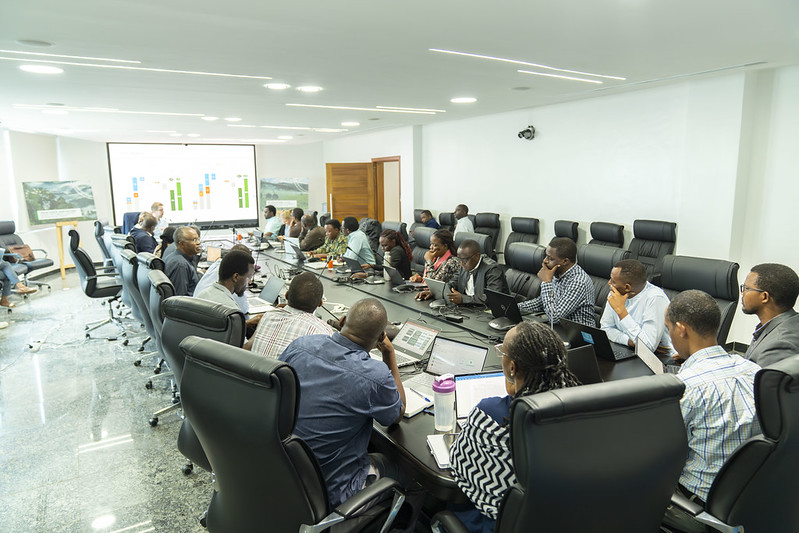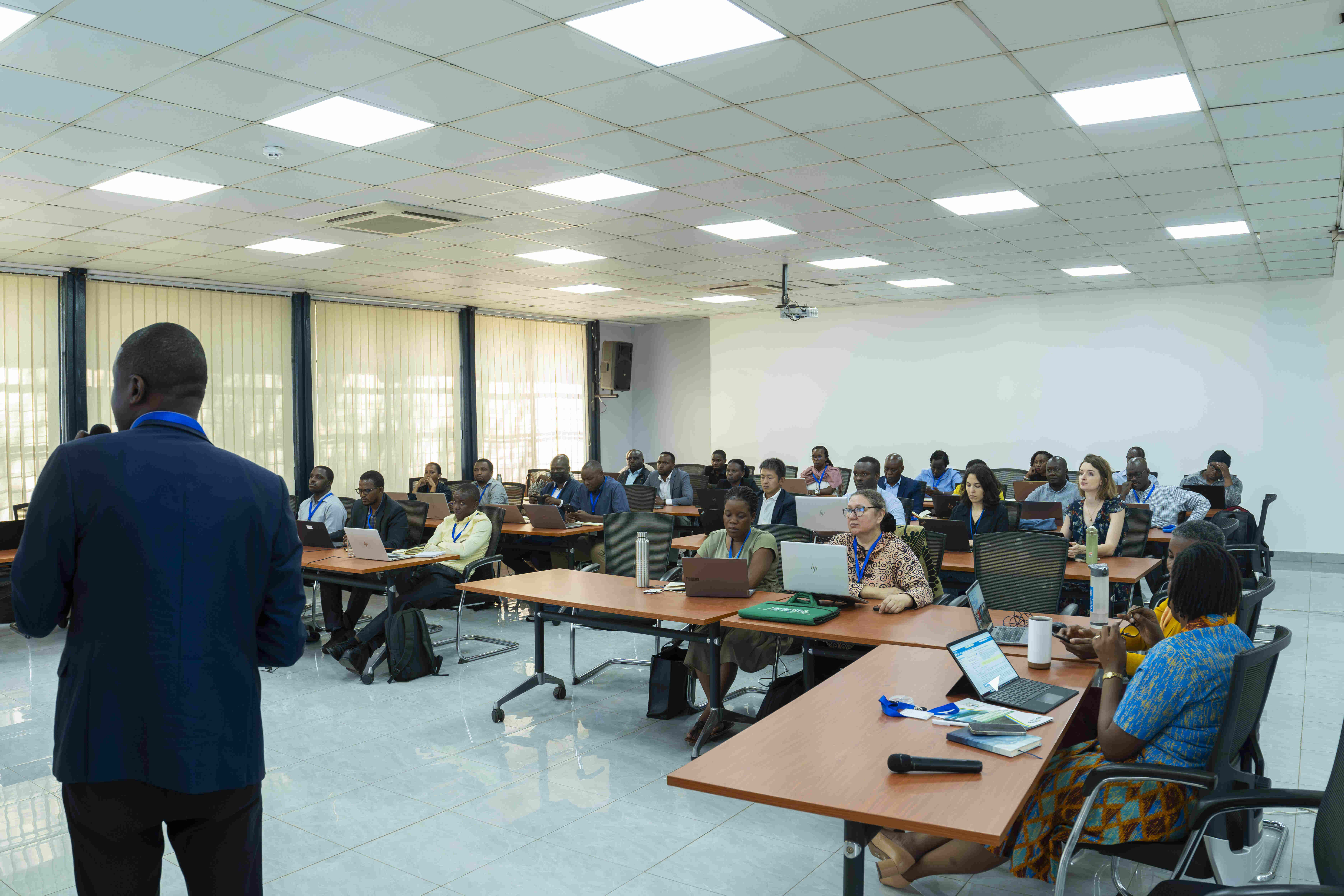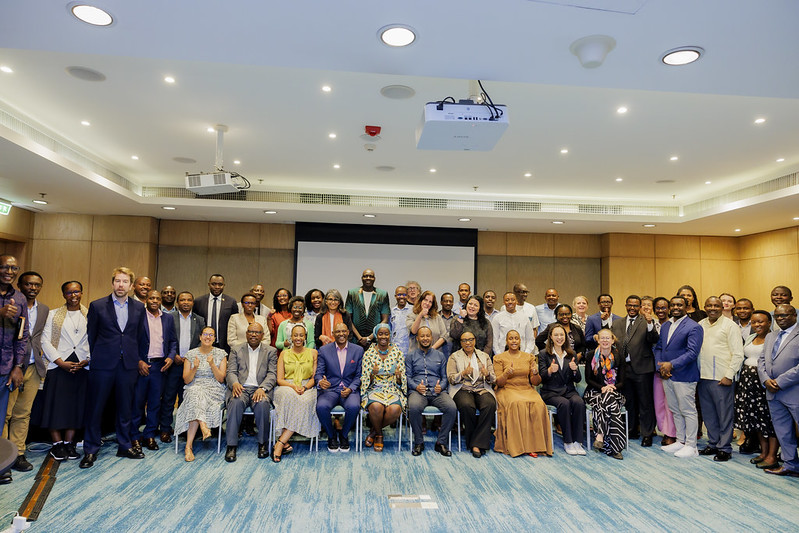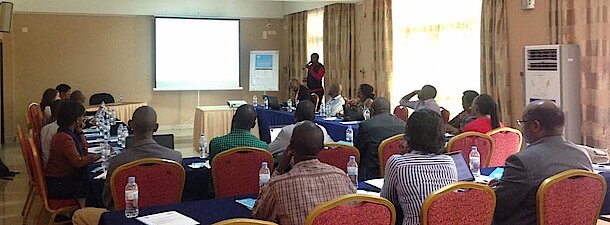
Rwanda NDCs Detailed Implementation Plan disseminated
Nowadays, climate change has become significant and emerging global challenge that the World is facing. Addressing the risks of climate change requires significant efforts by both the developed and the developing world. Unlike in the past years when Non Annex-I Parties (developing countries) to the United Nations Framework Convention on Climate Change (UNFCCC) had no obligations or commitments to reduce GHG emissions ; from Durban platform, developing countries were urged to join the global efforts to reduce GHG emissions.
The decision of the 19th session of the Conference of the Parties (COP 19) the UNFCCC held in Warsaw, Poland in 2013 invited all Parties to prepare and submit their Intended Nationally Determined Contributions (INDCs) to the UNFCCC secretariat before COP 21 held in Paris, France in December 2015.
With ratification of Paris Agreement (PA), the Intended Nationally Determined Contributions (INDCs) are no longer “Intended”, they have become Nationally Determined Contributions (NDCs) as Countries were recalled to look forward to the implementation of climate actions put forward in their NDCs.
In this line of joining global effort to combat climate change, following the ratification of Paris Agreement on 06th October 2016, Rwanda has developed a detailed implementation of Rwanda NDCs to translate committed adaptation and mitigation contributions into implementable measures. The detailed implementation plan of Rwanda NDCs was developed from May to June 2017 through a sector based consultative process. It maps stakeholders that are relevant to varying degrees for implementation.
The key sectors involved in NDCs implementation include Energy, Agriculture, Transport, Industry, Waste, and Forestry, Water use, Land use and Tourism.
Where possible the implementation estimates the costs and sustainable development co-benefits of the actions as well as Measurement, Reporting and Verification (MRV) of results and suggests timelines for their implementation. The plan also outlines capacity needs that must be addressed as well as barriers and risks that the different actions are facing in their implementation and provide recommendations and suggests next steps for a successful implementation
On 26th October 2017, at Lemigo Hotel in Kigali, Rwanda Environment Management Authority (REMA) has organized a dissemination workshop of the report on the detailed implementation plan NDCs to allow its smooth implementation.
To open the workshop, Mrs Coletha U. Ruhamya, Director General of REMA invited all sectors to refer to this implantation plan when implementing the actions related to their specific sectors. This implementation plan will help sectors to monitor how they are achieving the adaptation and mitigation contributions committed in Rwanda NDCs.
Topics
More posts
Rwanda to ensure the country’s updated Climate Action Plan is gender responsive and inclusive
A diverse array of stakeholders have met to enhance the integration and tracking of gender responsive and inclusive actions in Rwanda’s revised…
Rwanda Hosts First-Ever Climate Science Symposium to Bridge Research and Policy for Resilient Future
The inaugural Rwanda Climate Science Symposium (RCSS) has brought together scientists, policymakers, and development partners for a landmark two-day…
Local Government Stakeholders Meet to Contribute to Rwanda’s Enhanced Climate Action Plan
Local government representatives, policymakers, and climate experts have gathered for a two-day consultation workshop to share insights and…
RWANDA AND SINGAPORE SIGN IMPLEMENTATION AGREEMENT UNDER ARTICLE 6 OF THE PARIS AGREEMENT
The Government of Rwanda and the Government of Singapore have today signed an Implementation Agreement pursuant to Article 6 of the Paris Agreement,…
Youth Voices Shape Rwanda’s Updated Climate Action Plan
Young people from across Rwanda gathered for a Youth Consultation Workshop on Rwanda’s new Climate Action Plan, known as a Nationally Determined…
Young Rwandans Have Their Say in Shaping Rwanda’s New Climate Action Plan
As Rwanda updates its Climate Action Plan, known as a Nationally Determined Contributions (NDC 3.0), young Rwandans have been given the opportunity to…
Stakeholders Review Preliminary Results of Rwanda’s updated Climate Action Plan (NDC 3.0) Consultations
Stakeholders from across government institutions, civil society, the private sector, and development partners have come together for a three-day…
Stakeholder Consultation Workshop held to Shape Rwanda's Enhanced Climate Action Plan (NDC 3.0)
Stakeholders from across Rwanda’s public institutions and private sector, development partners, and civil society have come together for a NDC 3.0…
Rwanda Launches Nationwide Consultations to Develop New Climate Action Plan (NDCs 3.0)
Today, the Ministry of Environment, the Rwanda Environment Management Authority (REMA), other line ministries, delopment partners, CSOs and private…
